Osborne looks set to miss budget target for 2015-16
by Agency Staff,
2016-03-22 20:56:36.0
LONDON — British Finance Minister George Osborne is on the verge of missing his target for cutting the budget deficit in the current financial year, official data showed on Tuesday.
Mr Osborne, who is under fire for proposing cuts to disability welfare payments last week as part of his push to fix the public finances, is aiming to bring the budget deficit down to £72.2bn in the 2015-16 financial year.
But with only one month to go until the end of the tax year, the budget deficit already stands at £70.7bn, the Office for National Statistics (ONS) said after borrowing fell less than expected in February to £7.1bn.
To meet the target, borrowing in March would have to fall to its lowest March level since 2004, the ONS said.
The government said on Monday it was dropping the plan to cut disability benefits and Mr Osborne was due to speak in parliament on Tuesday.
Separate data released by the ONS showed the country’s most widely used measure of inflation held steady at 0.3% in the 12 months to February.
That was a bit weaker than a median forecast of 0.4% in a Reuters poll of economists.
British inflation sank below zero last year, pushed down by the plunge in global oil prices, and is expected to rise only slowly back towards the Bank of England’s 2% target.
The ONS said inflation was pushed down by lower prices for second-hand cars and bicycles while food prices pushed inflation up, led by more expensive potato crisps.
The Bank of England has said it wants to see a pick-up in core inflation, as well as stronger wage growth, before it thinks about raising interest rates from a record low of 0.5%. The ONS said inflation excluding fuel and other volatile prices rose by 1.2% in the 12 months to February, unchanged from January and in line with the Reuters poll.
There was little sign of price pressures building. Factory gate prices dropped by 1.1%, a touch less weak than the median forecast of a 1.2% annual drop in the Reuters poll.
But house prices rose at their fastest pace in January since March last year, rising by 7.9% across the UK as a whole and by 10.8% in London.
Reuters
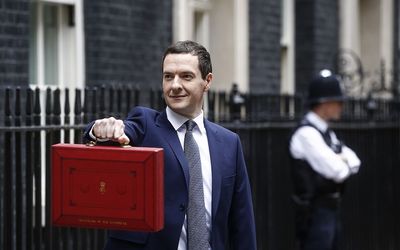
Chancellor of the Exchequer George Osborne holds the dispatch box containing the first budget by a Tory-majority government in almost two decades at 11 Downing Street in London, the UK, in July last year. Picture: BLOOMBERG/SIMON DAWSON
LONDON — British Finance Minister George Osborne is on the verge of missing his target for cutting the budget deficit in the current financial year, official data showed on Tuesday.
Mr Osborne, who is under fire for proposing cuts to disability welfare payments last week as part of his push to fix the public finances, is aiming to bring the budget deficit down to £72.2bn in the 2015-16 financial year.
But with only one month to go until the end of the tax year, the budget deficit already stands at £70.7bn, the Office for National Statistics (ONS) said after borrowing fell less than expected in February to £7.1bn.
To meet the target, borrowing in March would have to fall to its lowest March level since 2004, the ONS said.
The government said on Monday it was dropping the plan to cut disability benefits and Mr Osborne was due to speak in parliament on Tuesday.
Separate data released by the ONS showed the country’s most widely used measure of inflation held steady at 0.3% in the 12 months to February.
That was a bit weaker than a median forecast of 0.4% in a Reuters poll of economists.
British inflation sank below zero last year, pushed down by the plunge in global oil prices, and is expected to rise only slowly back towards the Bank of England’s 2% target.
The ONS said inflation was pushed down by lower prices for second-hand cars and bicycles while food prices pushed inflation up, led by more expensive potato crisps.
The Bank of England has said it wants to see a pick-up in core inflation, as well as stronger wage growth, before it thinks about raising interest rates from a record low of 0.5%. The ONS said inflation excluding fuel and other volatile prices rose by 1.2% in the 12 months to February, unchanged from January and in line with the Reuters poll.
There was little sign of price pressures building. Factory gate prices dropped by 1.1%, a touch less weak than the median forecast of a 1.2% annual drop in the Reuters poll.
But house prices rose at their fastest pace in January since March last year, rising by 7.9% across the UK as a whole and by 10.8% in London.
Reuters


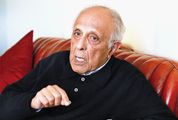
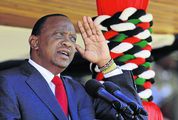




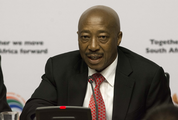
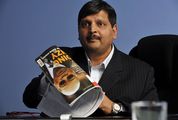











Change: -1.27%
Change: -1.42%
Change: -1.87%
Change: -1.08%
Change: -2.01%
Data supplied by Profile Data
Change: -0.47%
Change: 0.61%
Change: -1.27%
Change: 0.00%
Change: 0.63%
Data supplied by Profile Data
Change: -0.12%
Change: -1.22%
Change: -0.17%
Change: 0.54%
Change: 0.00%
Data supplied by Profile Data
Change: -0.84%
Change: -1.85%
Change: -2.59%
Change: 0.36%
Change: -2.35%
Data supplied by Profile Data